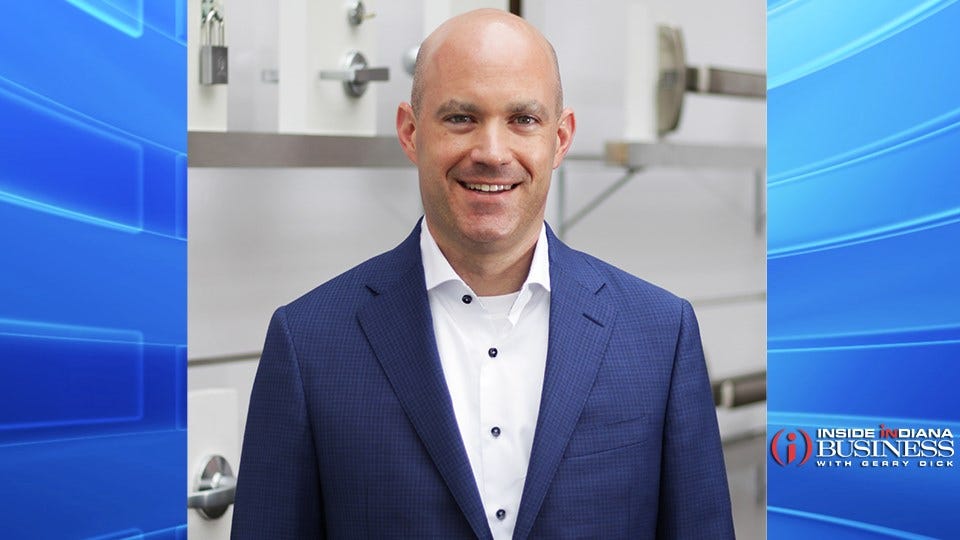5 Secrets to Effective Corporate Conversations

Subscriber Benefit
As a subscriber you can listen to articles at work, in the car, or while you work out. Subscribe NowZoom and Microsoft Teams meetings. Overflowing email inboxes. Conference calls. Livestreams. Video mail. In businesses across the world, the volume of communication taking place has reached new levels thanks to COVID-19 containment measures.
We’re talking more than ever; but do we really know what we’re saying? Is it leading to the desired actions? Good communication isn’t about volume; it’s about quality engagement.
I joined dormakaba, Zurich, Switzerland-based global provider of security and building products, as Chief Operating Officer, Access Solutions Americas on April 1, 2020 (no kidding), during the earliest days of the COVID-19 crisis in the United States. Upon joining, our leadership team was pivoting to crisis management mode to mitigate the impacts of the pandemic on our company. Some decisions were straightforward and easy, because they were values-based, taken straight from dormakaba’s core values: Customer First, Curiosity, Performance, Courage, and Trust. The first significant decisions had immediate, positive impacts on employee safety, employee care and business continuity. Other decisions have been more difficult due to the pandemic’s negative impact on the economic environment, therefore requiring discipline with cash management and intense prioritization of our growth-oriented investment plan.
While I’ve been communicating my whole career, I learned from the frontlines of this pandemic five secrets to effective leadership communication. These best practices are helping our company move forward during this unprecedented time.
Speak the language of B2P not B2B. The fundamental secret to leadership communication is to speak on behalf of the business to “its people” (B2P), not to “the business” (B2B). Every business plan I’ve ever read or written states that employees are the company’s greatest asset. When leaders speak in ways that don’t connect with employees on a human level, this asset stagnates and disconnects from organizational goals.
Unite your audience with personalized, relevant information. Help listeners connect what you say with what they hear and their ability to add value to the organization. Communication isn’t limited to cheerleading or slogans on coffee mugs and T-shirts. Deliver your messages across multiple media outlets so your team can choose when, how, and where they’ll pay attention to it and you’ll see higher engagement rates. I’ve had to become very comfortable with regular e-mail videos that I create myself using a MacBook.
Be honest and authentic as you speak with authority. Effective communication is real, not spin. When leaders stay true to who they are rather than an imagined image, people will gravitate toward their message. This direct approach avoids ambiguity that can lead listeners to tune out long before you’re finished talking. If something is unknown, uncertain or even unfavorable, deal with reality in the communication and provide values and vision as a way through.
Think in terms of conversation, not speech. Even with social distancing, leaders rarely have the luxury of speaking to one person at a time. In our multi-generational, multi-media dependent world, being able to speak to groups as if we’re speaking to individuals helps us as leaders to deliver messages that can be heard and acted upon in the best ways possible.
View communication as an act of service, not a means to an end. Communication that inspires people toward self-empowerment is the foundation that moves new ideas and organizations forward. The best communicators transfer ideas – even during hard times – by aligning expectations and inviting others to help spread a vision. If that vision changes, leaders can pivot quickly but keep moving forward with empathy, clarity, and familiar values, so people stay with them. In short, leaders should approach each interaction with the intention to serve and inspire. The ultimate goal is to make the people you lead better. When leaders do that, organizations become stronger.
At dormakaba, we realized that the pandemic presented an opportunity to rethink the way we do business. We’ve used these communications practices to build energy around new initiatives designed to elevate our customer-first approach, focus our products work on innovation, and become a preferred employer across the Americas. How do we know that this approach is working? As I resume business travel and see firsthand the new nature of our company across our sites, I see that our people have been very effective. We have innovated and advanced product to meet new needs in the marketplace, accelerated training, especially for our service team, to be familiar with a new application of our products to screen and ensure public health at access points, and I have seen our company’s message to the market change, conveying trusted partnership for our channel partners and end users alike. Consistent and progressive change of this magnitude is only possible with talented people, aligned to a goal, and all thanks to effective communication.
